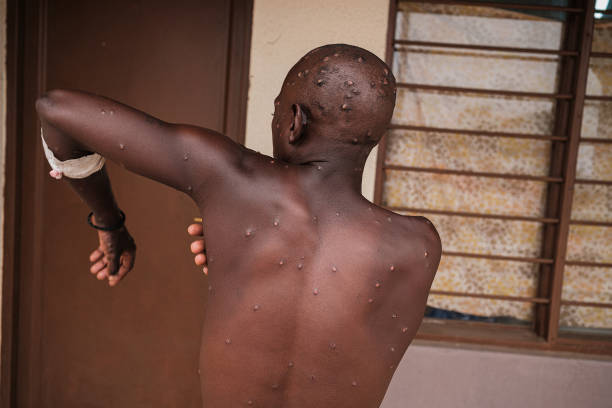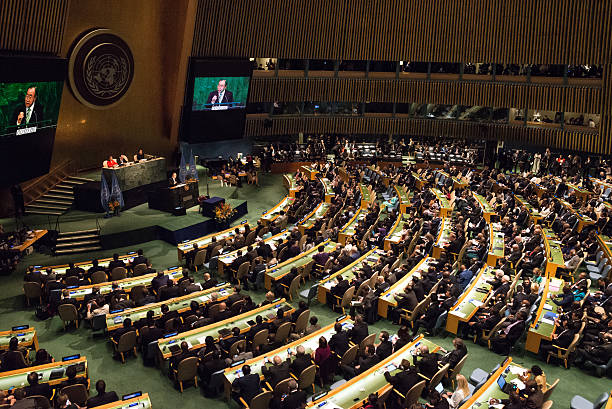As rains sweep across Nigeria and temperatures swing between extreme heat and flooding, a new threat is brewing — and it’s not just in the weather. The Nigeria Centre for Disease Control and Prevention (NCDC) has sounded the alarm on multiple infectious disease outbreaks, warning that the country is at a dangerous tipping point.
From cholera and dengue fever to Monkey pox, diphtheria, and yellow fever, the NCDC’s latest alert is not just a health bulletin — it’s a national wake-up call.
A Web of Outbreaks
According to data published by the NCDC on Friday, Nigeria is grappling with simultaneous outbreaks of at least five high-risk infectious diseases. Cholera, a waterborne illness that thrives in poor sanitation, is currently ravaging 34 of Nigeria’s 36 states. In just one week (June 23–29), Zamfara State alone accounted for a staggering 32% of all suspected cholera cases.
Other hotspots include urban and rural areas of Bayelsa, Adamawa, Delta, Lagos, and Rivers — all states with varying degrees of overcrowded settlements, irregular water supply, and overburdened healthcare systems.
Cholera is caused by Vibrio cholerae, a bacterium that leads to acute diarrhea, dehydration, and potentially death if left untreated. In regions where clean water is scarce and open defecation remains a challenge, the disease spreads rapidly and silently.
But cholera isn’t the only concern.
Dengue and Yellow Fever: Mosquitoes Take Centre Stage
In Edo State, health officials confirmed a dengue fever outbreak between June 9 and 13, traced back to laboratory-confirmed cases. Spread by Aedes mosquitoes — the same culprits responsible for yellow fever — dengue thrives in environments where stagnant water and poor waste disposal provide ideal breeding grounds.
Yellow fever, also a mosquito-borne viral disease, has surfaced in Abia, Anambra, Edo, Ekiti, Lagos, and Rivers. Seven cases have been officially confirmed.
“The yellow fever vaccine remains the most effective prevention strategy,” the NCDC stressed, pointing to a longstanding public health tool that has helped reduce fatalities from the disease in the past.
But with climate change influencing rainfall patterns, and urbanisation expanding without adequate infrastructure, experts say mosquito-borne diseases like these are likely to increase.
Mpox and Diphtheria: Still Lurking
While newer to the public health conversation in Nigeria, Mpox (formerly monkeypox) and diphtheria remain part of the current threat.
Mpox causes a painful mix of fever, rash, and swollen lymph nodes. Diphtheria, on the other hand, attacks the throat, making it hard to breathe, and in severe cases, can block airways entirely. It’s highly contagious and potentially deadly, especially for children.
These diseases haven’t grabbed headlines like cholera or dengue, but they continue to pose ongoing dangers in communities with low vaccination coverage and limited access to healthcare.
Public Health at a Crossroads
The NCDC’s message is clear: Nigeria needs urgent, coordinated action to prevent these outbreaks from escalating further. The agency is calling on everyone — from state governments to local communities — to act now.
What Can Nigerians Do?
-
Eliminate mosquito breeding sites: Dispose of standing water in pots, tyres, and containers.
-
Use insecticide-treated nets: Especially for children and pregnant women.
-
Maintain personal and environmental hygiene: Wash hands regularly, keep food covered, and ensure toilets are clean.
-
Avoid self-medication: Many symptoms of dengue and yellow fever mimic malaria, making proper testing essential.
-
Get vaccinated: Particularly against yellow fever and diphtheria.
A Call for Preparedness, Not Panic
While the scale of these outbreaks may sound alarming, health experts say Nigeria still has time to limit the damage — but only if people take preventive steps and governments act fast.
This moment echoes a haunting past. In 2010, Nigeria experienced a devastating cholera outbreak that killed over 2,000 people. The early signs back then were ignored. Today, with more tools, more knowledge, and a louder warning, the country has a chance to write a different ending.
Public health isn’t just the job of health workers — it’s everyone’s responsibility. In a season where disease spreads faster than rumors, awareness and action may be our best defense.





